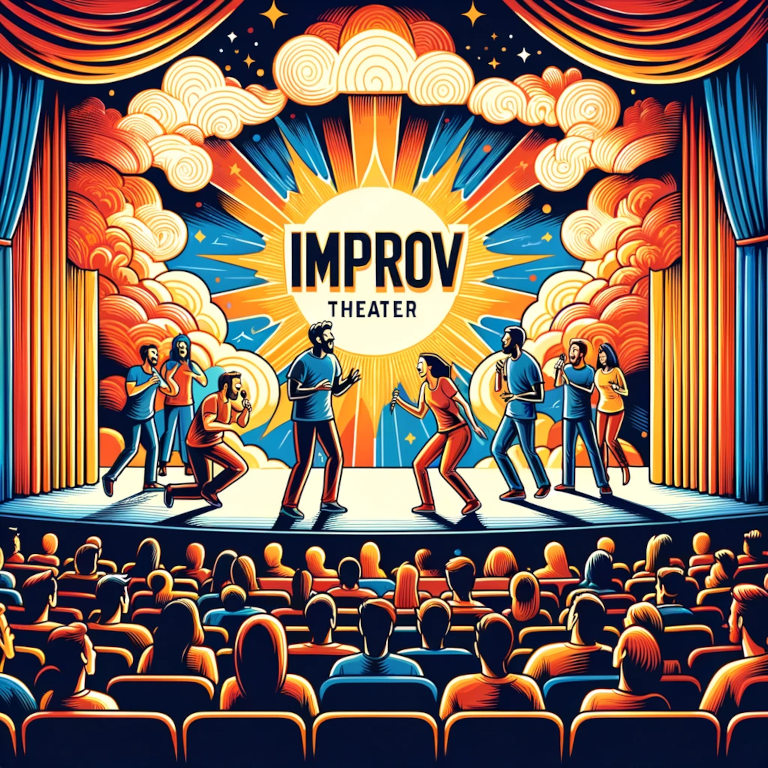Improv theater is a unique and exciting form of entertainment that relies on spontaneity, creativity, and quick thinking. Unlike traditional scripted performances, improv actors create scenes and stories on the spot, often incorporating audience suggestions to guide the narrative. This article delves into the world of improv theater, exploring its origins, key elements, and the benefits it offers to both performers and audiences.
What is Improv Theater?
Improv, short for improvisation, is a type of theater where actors perform without a predetermined script. Scenes are created spontaneously, typically based on audience prompts or other forms of inspiration. The essence of improv lies in its unpredictability, allowing performers to explore new ideas and characters in real-time.
The Origins of Improv Theater
Improv theater traces its roots to various cultures and traditions, but its modern form emerged in the early 20th century. Pioneers like Viola Spolin, often referred to as the “mother of improv,” developed improvisational games to enhance creativity and spontaneity. Spolin’s techniques laid the foundation for improv as an art form, influencing groups like The Second City, which became a breeding ground for famous comedians.
Key Elements of Improv Theater
- Yes, And…: The golden rule of improv is “Yes, And,” which encourages actors to accept what their scene partner says and build upon it. This principle fosters collaboration and drives the scene forward.
- Listening: Active listening is crucial in improv. Performers must pay close attention to their partners to respond appropriately and advance the story.
- Spontaneity: Improv thrives on spontaneity, with performers encouraged to embrace their instincts and react in the moment. This spontaneity creates an exciting atmosphere where anything can happen.
- Character and Relationship: Improv scenes often revolve around the dynamics between characters. Establishing clear relationships helps create engaging and relatable stories.
The Benefits of Improv Theater
- Creativity: Improv encourages out-of-the-box thinking and creative problem-solving, benefiting performers in various aspects of life.
- Confidence: Performing in front of an audience without a script boosts confidence and reduces fear of failure.
- Teamwork: Improv relies heavily on collaboration, teaching performers the importance of working together toward a common goal.
- Adaptability: The unpredictable nature of improv helps develop adaptability, enabling performers to handle unexpected challenges with ease.
The Appeal of Improv Theater for Audiences
For audiences, improv theater offers a unique and engaging entertainment experience. The unscripted nature of the performances means no two shows are alike, creating a sense of excitement and anticipation. Audiences are often involved in the creative process, with their suggestions shaping the direction of the scenes, leading to a highly interactive experience.
Getting Started with Improv Theater
Whether you’re interested in performing or just want to experience the thrill of improv, there are several ways to get involved:
- Take a Class: Many theaters and comedy clubs offer improv classes for beginners. These classes provide a supportive environment to learn the basics and develop confidence.
- Join a Group: Improv groups or clubs offer opportunities to perform and hone your skills with like-minded individuals.
- Attend a Show: Watching live improv performances is a great way to understand the art form and draw inspiration from experienced performers.
Improv theater is a vibrant and dynamic form of entertainment that offers a unique blend of creativity, humor, and spontaneity. Whether you’re on stage or in the audience, improv provides a refreshing escape from the ordinary, celebrating the joy of unscripted storytelling.






